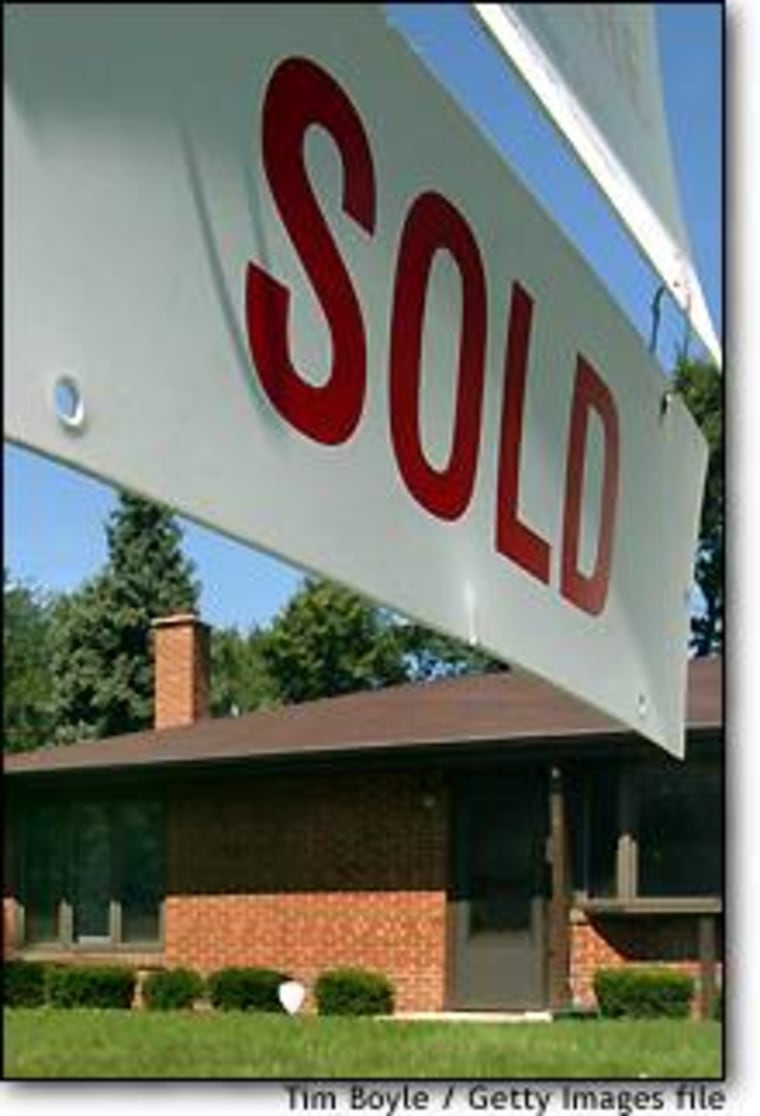Katie LeBlanc, a systems analyst in Phoenix, suffered from “statement shock.” As the stock market tanked, she would look at her statements every month and “see the amount going down and down.” Meanwhile, the value of her friends’ homes kept rising. So, in April, LeBlanc, 27, bought her first home.
LeBlanc is not alone. With real estate touted as the hottest thing since tech stocks, many people are jumping aboard the bandwagon the only way they can: as first-time homebuyers.
Low interest rates are helping as well. During the recession of the early ’90s interest rates for a fixed 30-year home mortgage hovered around 9 percent — a figure that seems almost obscene in today’s 6 percent market. John Erickson, a Chandler, Ariz., real estate agent who specializes in first-time buyers, says the low interest rates are luring long-term renters. “Their house payments often turn out to be less than the rent they were paying.”
Buyers in the Phoenix area have an advantage, of course. Arizona is one of the fastest growing states in the country and the abundance of new developments is keeping prices on all homes competitive. But even those shopping in the hot Northeast and West Coast markets, where scant supply has continued to keep prices high, are finding that buying a first home is doable.
Easier than buying a car
“It was the largest financial obligation I ever made. I was surprised by how easy it was,” LeBlanc says. “I know that sounds crazy.”
While LeBlanc says that the research process took some time, “actually buying [a home] was easier than buying a car.” The research part is getting easier as well, thanks to the Internet. First-time buyers can search listings once available only to real estate agents, use calculators to figure out their payments and even compare neighborhood profiles.
“Newer first-time buyers are much better informed,” says Erickson. “Seventy percent start their search on the Internet.” To help attract this new breed of more savvy first-timers, real estate agents like Erickson must go online as well. Erickson’s Web site, firsthometeam.com, for example, offers a glossary of real estate jargon — a useful reference for first-time buyers trying to parse their way through PMI, PITI and points.
The biggest hurdle to most first-time homebuyers, of course, is money. The traditional 20 percent downpayment can seem like an awful lot of cash to those still proud when their checks don’t bounce. The good news, however, is that banks are increasingly loosening the reins on mortgates. Qualification standards are changing, and while the ever-present debt-to-income ratio is important, lenders are also more likely to take a chance these days on someone with a lower income if they also have an excellent credit history.
LeBlanc put down only 10 percent on her house, and there are many loan programs, FHA and otherwise, that let buyers put down as little as 3 percent. In the buyers’ market around Phoenix, some properties can even be had for zero down, with no upfront closing costs, Erickson says.
No free ride
Of course, there’s no such thing as a completely free ride. Low-down payments come with strings attached in the form of private mortgage insurance. Varying on the size of the loan, these fees are intended to protect the lender if you default and can be as high as a hundred dollars a month on a $200,000 mortgate. And, while few expect a future housing slump on par with that of tech stocks, real estate has its ups and downs as well. The more equity you have, the less likely you are to find yourself squeezed between a huge mortgage and falling home prices.
Then there’s the other financial costs — the ones that don’t show up on the mortgage calculator. If your water heater breaks now, it’s your landlord’s responsibility to fix. Own your own home, and not only do you have to pay for it, but you have to be the one to skip work and wait for the repair guy to show up.
“It’s all the little things,” says LeBlanc. “When you’re renting you take for granted that when the sink clogs, someone will come and fix it. I think in the back of your mind, you knew it was now your responsibility, but until it happens [you don’t really believe it.]”
But LeBlanc says she likes the challenges and describes with enthusiasm a citywide search to find the right size of window crank for the windows in her older home. People who shudder at the thought of weekends spent in Home Depot, however, may want to think twice about giving up the super and the doorman.
Something of my own
In the end, however, it is the rare first-time homebuyer who is driven simply by a weighing up of the economic pluses and minuses. “I just really liked the idea of having something of my own,” LeBlanc says. “It was time. I had a stable career. I just really wanted to own a home and set down some roots.”
That’s a sentiment that Karen Jaffe can relate to. The development director of a non-profit consumer group in Portland, Ore., Jaffe is just starting to think about buying her first home. “I do have good credit, and I’m little Miss Dependable on my bills so I think I will be able to get a loan. I just want to make sure I can afford it and all the attendant disasters without being forced to live on bread and water,” Jaffe says, laughing. Jaffe, 30, says she moved to Portland in part because she knew she could eventually afford to buy a home here. “I want to own something,” she says. “I want equity. Mostly, I want something with my name on it that’s my home.”
